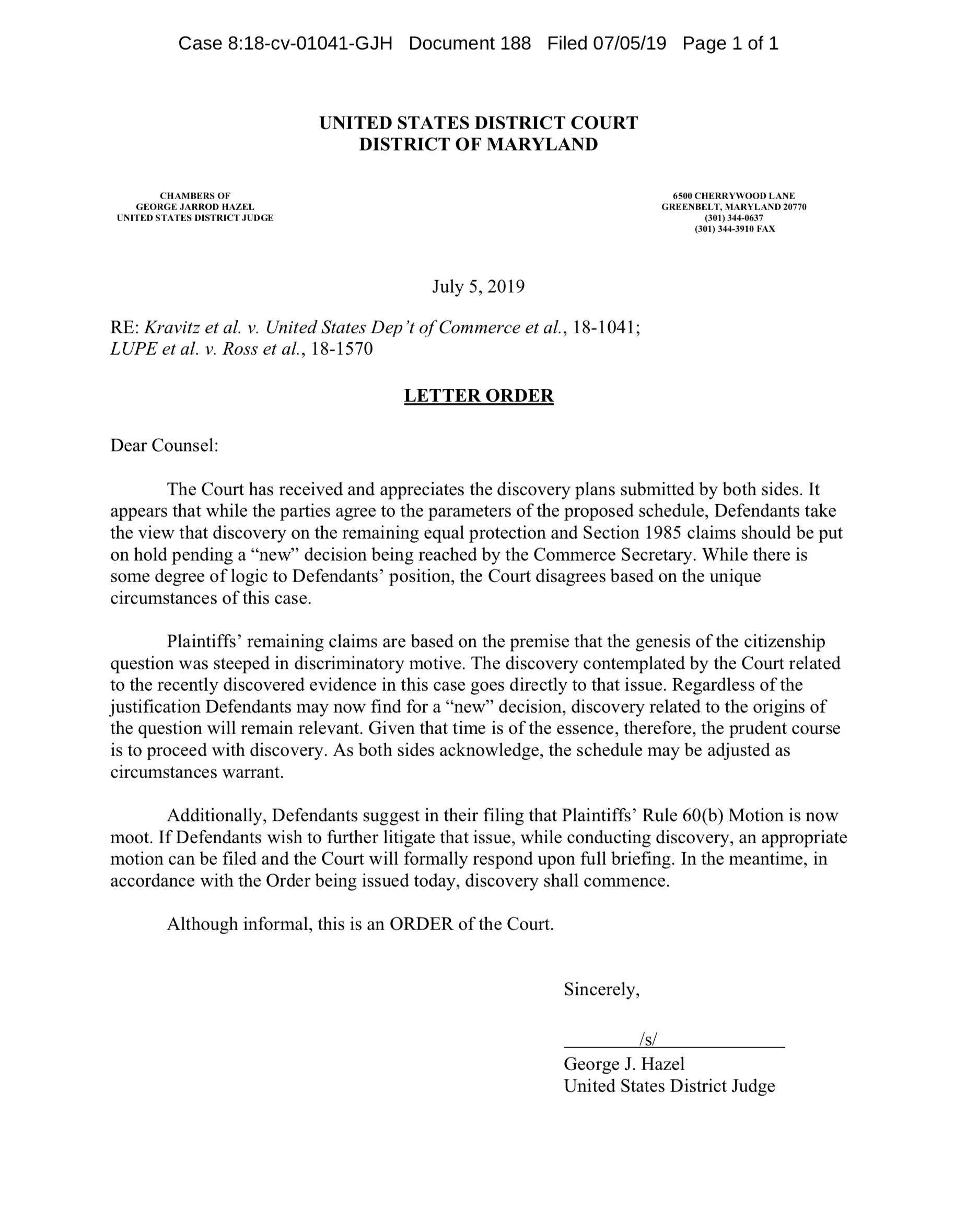A federal judge ordered that discovery should move forward into the allegations of possible “discriminatory motive” behind the Trump administration’s efforts to add a citizenship question to the census.
The attempt by the Justice and Commerce Departments to add the question was struck down by a recent 5-4 Supreme Court decision.
The order from Judge George Hazel of the U.S. District Court for Maryland came as the DOJ said it is still looking for a “new rationale” for adding the citizenship question, although it has not settled on what that new rationale might be.
“Regardless of the justification defendants may now find for a ‘new’ decision, discovery related to the origins of the question will remain relevant,” Hazel wrote on Friday. “Given that time is of the essence, therefore, the prudent course is to proceed with discovery.”
The Maryland case is one of three in which a judge has rejected Trump’s efforts to include a citizenship question in the 2020 census.
Trump suggested there were still “four or five ways” to add the citizenship question to the census, “including an executive order.” Trump also said that “we can start the printing [of census surveys] now and maybe do an addendum after we get a positive decision.”
It is unclear what Trump’s executive order might look like, although it is likely it would be challenged in court immediately.
After the Supreme Court blocked what it called “contrived” efforts to add the citizenship question, it looked like the Trump administration had given up on it earlier this week, with Commerce Secretary Wilbur Ross and the DOJ saying on Tuesday that the Census Bureau would print the forms without the question.
But Trump tweeted Tuesday evening that he’d asked the Commcerce and Justice Departments “to do whatever is necessary to bring this most vital of questions, and this very important case, to a successful conclusion.”
Hazel held a hearing between DOJ attorneys and the plaintiffs on Wednesday, saying he had seen Trump’s tweet, which contradicted DOJ’s prior position. DOJ claimed they had been “instructed to examine whether there is a path forward” and were “looking at near-term options to see whether that’s viable and possible.”
DOJ’s attorneys have not yet provided a new argument.

